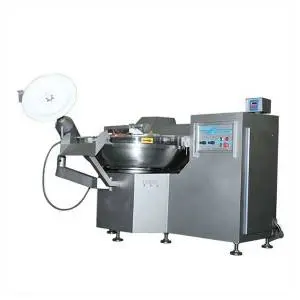
Jul . 28, 2024 17:38 Back to list
Frozen Meat Processing Facilities and Their Impact on the Food Industry Supply Chain
The Evolution and Impact of Frozen Meat Cutter Factories
In recent years, the frozen meat industry has seen significant developments, primarily driven by advancements in technology, changes in consumer preferences, and increasing globalization. One of the pivotal components of this industry is the frozen meat cutter factory, which plays a crucial role in processing, packaging, and distributing meat products. This article delves into the evolution of frozen meat cutter factories, their operations, and their impact on the meat supply chain.
The Growth of Frozen Meat Processing
The origins of meat preservation date back thousands of years, with methods such as salting, smoking, and drying. However, the advent of refrigeration has revolutionized the way meat is preserved and consumed. The frozen meat cutter factory emerged as an innovation to enhance the efficiency of meat processing. These factories are equipped with sophisticated machinery that allows for rapid cutting, deboning, and packaging of meat, ensuring that products remain fresh and safe for consumption over extended periods.
State-of-the-Art Equipment and Technology
Modern frozen meat cutter factories employ advanced technologies that streamline the meat processing workflow. Automated cutting machines have replaced manual labor, increasing precision and reducing waste. Such equipment is designed to handle various types of meat, including beef, pork, and poultry, allowing factories to adapt to changing market demands.
In addition, these factories often utilize cryogenic freezing methods, which preserve the quality of meat by freezing it at extremely low temperatures. This technique not only helps in maintaining the meat's nutritional value but also enhances its shelf life, making it suitable for global distribution.
Quality Control and Food Safety
frozen meat cutter factories

One of the paramount concerns in the meat industry is food safety. Frozen meat cutter factories adhere to strict hygiene standards and implement rigorous quality control measures. Regular inspections and monitoring ensure that the meat is processed in a safe environment. Additionally, many factories are certified by food safety organizations, giving consumers confidence in the products they purchase.
The traceability of meat products is another vital aspect of quality control. Many factories utilize barcoding and RFID technology to track the journey of meat from farm to table. This traceability not only enhances transparency for consumers but also facilitates prompt action in case of any safety issues.
Economic and Social Impact
Frozen meat cutter factories contribute significantly to local and global economies. They create job opportunities in various sectors, from processing and logistics to marketing and sales. Furthermore, the globalization of the meat supply chain has allowed countries to export and import meat products, leading to increased trade and economic interdependence.
However, the rise of frozen meat processing also raises important discussions about sustainability and ethical practices in the meat industry. Advocates emphasize the need for environmentally friendly practices, such as reducing waste during processing and adopting humane treatment of animals. As consumers become more aware of these issues, factories are prompted to consider more sustainable operational methods.
Conclusion
Frozen meat cutter factories are at the heart of the modern meat supply chain. Through technological advancements, stringent quality control, and economic contributions, they shape the way meat is processed and consumed worldwide. As the industry continues to evolve, balancing efficiency, sustainability, and consumer safety will be key challenges. Ultimately, the future of frozen meat cutter factories will depend on their ability to adapt to changing market dynamics while ensuring the highest standards of quality and ethics in meat production.